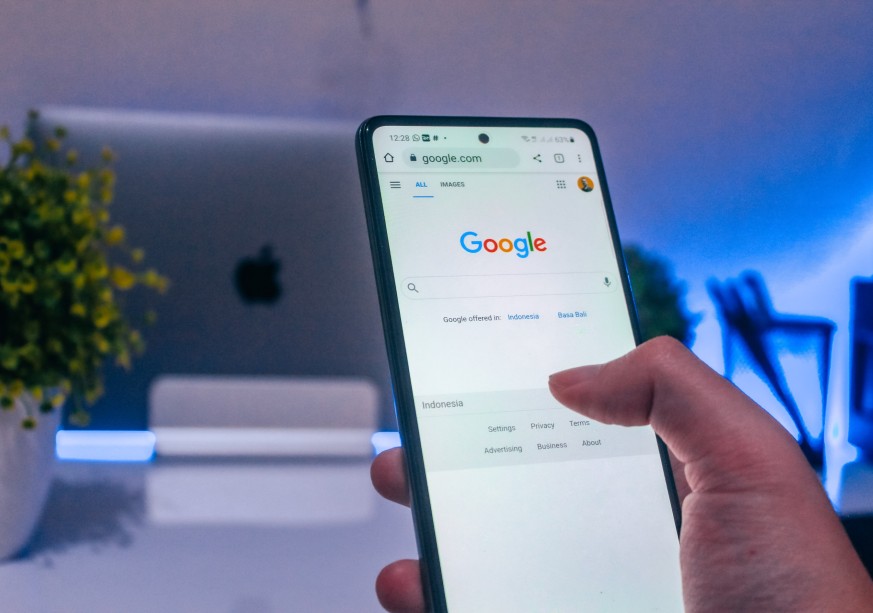
Google have made some big announcements over the years, but perhaps none as big as the one made on October 4th, when the search giant launched the first wave of their new, possibly game-changing devices.
With it being Google, these new releases are also bound to influence the way we search online, the way businesses need to structure their information and the way we all have to approach building websites. So, what are these devices called and what do they do?
How to Roast an Apple
So the 4th of October is the day the mobile device market could change entirely. Google have launched their first made in-house, mobile device—the Pixel.
The launch video (a public, two-fingered salute to Apple) is packaged with a host of exciting features to produce an ad that is not only tongue in cheek, but also connects with people. I mean, a headphone jack as standard is standard. Or at least it should be.
I have had various versions of the iPhone for many years, so no one can say I am bashing the device without using one. The measly difference in features between the iPhone 6, 6s and 7 had already started to leave a sour taste, but this launch has exaggerated it.
The Pixel is already getting huge reviews from some of the biggest tech magazines and blogs, see Wired and Gizmodo, so this could be the phone that tips the iPhone fleet off the top of the market. The biggest thing that interests me however, is what this means for the future of mobile device web browsing.
New Mobile, New Google?
When the world’s largest and most popular search engine creates a device to search the web, surely it is going to make some changes to help out its own device, right? Well, the Pixel is the first phone to feature Google Assistant, their new answer to Siri (which since 2013 has used Bing as its primary Search Engine). Along with the Chrome Browser as standard, this means users will be funnelled into using Google’s search functions and, by default, helping the engine get even smarter.
Earlier this year, Google rolled out another update that affected the ranking of sites dependent on their mobile-friendliness, further optimising the results for users browsing on mobile devices.
This trend of updates—that have conveniently been arriving on the lead up to the release of the Pixel—could mean the inevitable culling of all non-mobile friendly search results on Google’s Search Engine, at least on mobile.
There have already been some early signs. Since Google initially unleashed ‘Mobilegeddon’ in 2015, we have seen a steady decline in traffic across a selection of websites not built for mobile. Here's an example from one page in particular:

Obviously, there are other factors that go into calculating a website’s ranking, but mobile users want quick, concise experiences and the search engine is paying attention to them. With the first Made by Google phone on the market, this impetus on mobile isn’t going to go anywhere. If you’re unsure whether your own site is mobile friendly, you can find out by using the Webmaster Tool.
My Question to Google is, how long have we got until we need to get websites optimised specifically for the Pixel? More importantly, my monitoring headphones are not wireless, so do you promise to keep the headphone jack on future releases? As standard?
“OK Google, write me a subheading”
Another industry Google are making a venture into is the personal home assistant market. The technology has until now been led by Amazon and their Personal Home Assistant unit, Echo. It’s more relatable persona, Alexa, can take voice activated commands from users and respond with a host of actions, from ordering an important item, checking traffic or playing music.
Google’s stab at this, the Google Home, is due to come out in November and uses the same voice activated assistant as the Pixel. With this in mind, the impact of Google’s rankings are set to become even more important, as their Home tech serves up the single result it deems best, rather than a page-full of options.
For their part, Google Home will have more personal options that could make the device more appealing to a fairly new market. These include a choice of colours, custom phrase commands (for example, “OK Google, make it rain” could be programmed to turn on a WiFi controlled shower) and the option to be able to link multiple Google Home devices to play Multi-Room Audio.
If these devices become a staple in a modern family home, like PCs, mobiles and tablets before them, then search engines may need to start putting new measurements and rankings in place to optimise the results returned on them. Maybe we’ll soon be confronted by ‘Home friendly’ results.
Google will certainly be making a ripple in the market with these devices and with it being their first attempts at both, they can only be improved upon with growing user feedback. If Apple can come from nowhere to dominate a market within less than seven years, why can’t Google do the same?






